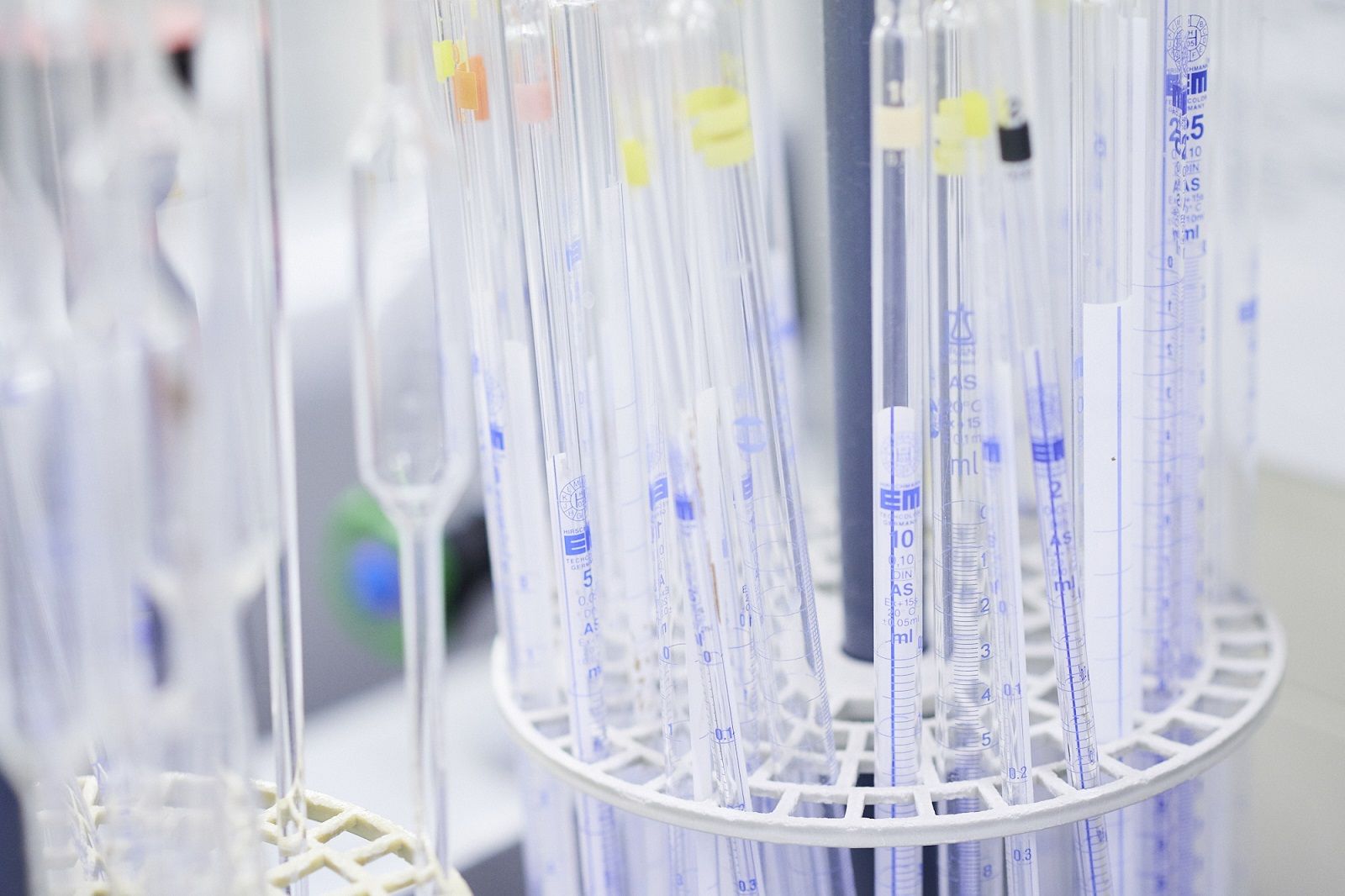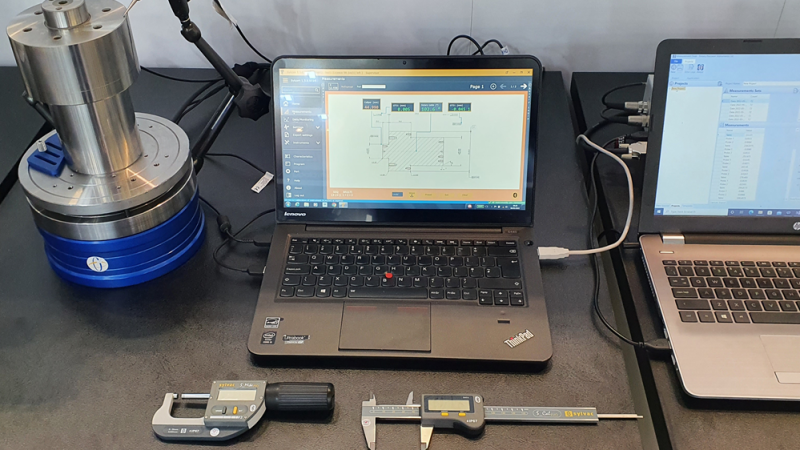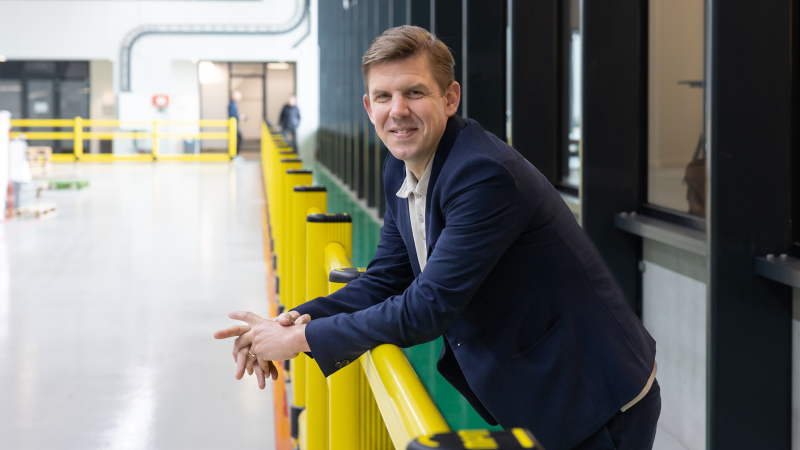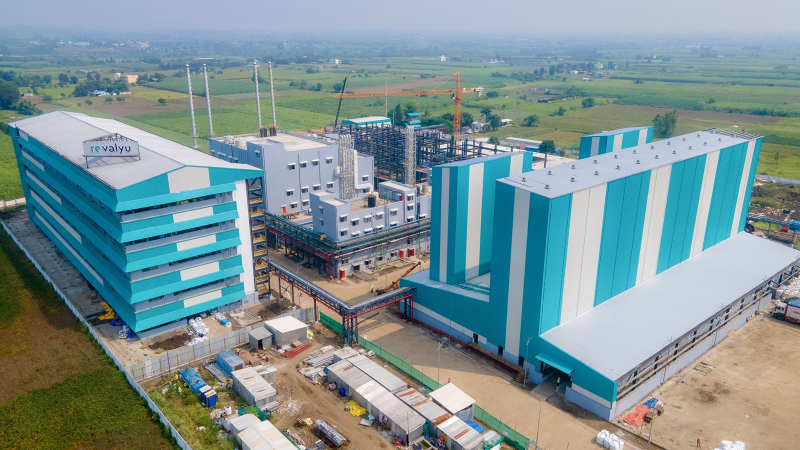Since the foundation of CHT Germany GmbH in Tübingen nearly 70 years ago, the CHT Group has developed into a globally active group of companies with a focus on speciality chemicals as function providers, auxiliaries and additives for industrial processes. The group, with its 2,500 employees, provides products and services for customers in over 120 countries on all continents.
“We are a speciality chemicals developer and manufacturer, operating worldwide with 28 sister companies. Our task is to provide clients with the right, sustainable chemical solution to solve their specific problems,” says Dr Bernhard Hettich, CHT Group’s CTO and member of the board. “Our clients are great at many things but for the most part, they are not chemists. That’s where we come into the picture.”
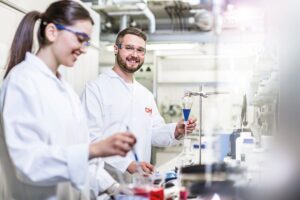 CHT Group stands out for many reasons, but one aspect is unique – it is foundation-owned, a clever set-up designed by the late founder to make sure that all earnings remain within the company and that the focus is not just on profits but on social aspects as well. CHT has well-defined staff support and development programmes in place, tailored to each country where the group operates, and the foundation supports a variety of charitable projects.
CHT Group stands out for many reasons, but one aspect is unique – it is foundation-owned, a clever set-up designed by the late founder to make sure that all earnings remain within the company and that the focus is not just on profits but on social aspects as well. CHT has well-defined staff support and development programmes in place, tailored to each country where the group operates, and the foundation supports a variety of charitable projects.
“The legacy of the founder is simple – make profits but care for the people and maintain their jobs. Not many other companies have this ethos as the basis of their business. This is a very stable structure that prevents us from being sold and supports a longer-term vision, The view is to develop the company in a sustainable manner,” says Dr Hettich.
Four pillars
He explains that the activities of the CHT Group are organized in four business fields. CHT’s traditional sector is the textile industry, today representing two-thirds of the business. Here, the company offers a vast range of sophisticated auxiliaries, function generators and textile dyes covering the complete textile chain, supplied to textile manufacturers and textile finishing companies all over the world.
The second field is what the company calls general industry, covering a very wide range of applications, from technical applications and electronics to cosmetics. This business line includes an important product – silicone elastomers for high-tech applications such as material properties for lighting, electrical and electronic devices.
Construction and assembly is the third pillar, where CHT delivers chemicals to make specially designed material properties. And last but not least, CHT also develops adjusted washing and care concepts for the requirements of modern laundries within its Washing Solutions business line, supplying industrial laundry groups operating worldwide but also smaller laundries, hotels, hospitals and nursing homes.
Dr Hettich says: “Textile is our traditional field and this will always remain, although it is growing more slowly than general industry or construction for example. Geographical markets for the individual business lines are also very different. Needless to say, our textile products are sold to different countries than our speciality silicones.”
The edge of innovation
A strong R&D capability is one of CHT’s competitive advantages. The Group’s internal development centre employs some 80 R&D specialists that work together with product developers in the field, securing the link between newly invented molecules and their applications on the customer side.
This customer-centric approach means that the company has over 5,000 customised products worldwide. “We are talking about 180,000 tonnes a year. There are many companies that do less than 180,000 tonnes a year with a single product,” Dr Hettich points out.
Recent innovations include chemical solutions and technologies for global denim manufacturers within the textile business. Under a new brand LAB102, the company has developed an ecological modular system with high-performance and gentle alternatives to stones, potassium permanganate or chlorine. The technology enables jeans and garment treatment at the highest ecological level, while also saving water and energy.
On the other side of the innovation spectrum, Dr Hettich mentions several new products in the special silicone elastomers area, such as a new state-of-the-art silicone foam for electronic components and energy storage modules in electric vehicles; and a thermally conductive silicone elastomer for potting and encapsulating electric and electronic components.
Sustainability as a growth driver
Not only innovation but also sustainability is truly ingrained in CHT’s DNA, and the Group has been striving to make the chemical value chain more sustainable with new products and processes for many years.
Around 70% of CHT’s total sales volume worldwide is generated with products classified as sustainable. “It is important to recognise that sustainability is three-fold – ecological, economic, and social. Under our internal classification system, products are launched only if they meet all three aspects,” Dr Hettich says, affirming that the company is striving to achieve a full 100% sustainability in the future, a formidable task.
social. Under our internal classification system, products are launched only if they meet all three aspects,” Dr Hettich says, affirming that the company is striving to achieve a full 100% sustainability in the future, a formidable task.
Interestingly, CHT does not have a sustainability strategy as such, as the whole company strategy is apparently based on sustainability, reflecting the UN Sustainable Development Goals.
In the context of the current energy crisis, Dr Hettich points out that as early as 12 years ago, CHT switched one of its major production sites in northern Germany to biogas. At that time, the project won the Sustainability Award from the German chemical industry association Verband der Chemischen Industrie (VCI). This was to be followed by many sustainability awards in the following years.
Moving into the future
With its proven track record and efficient measures in place, CHT Group is well placed to face the current challenges such as the volatile geopolitical situation and the unfavourable political and legal environment in today’s Europe, which seems to hinder industrialisation, says Dr Hettich.
“Despite the numerous legal and environmental obstacles which European manufacturers face today, we are looking positively to the future. We are very diversified, we are financially strong, and we will handle the challenge. We are monitoring market movements and are striving to get closer to industry clusters that exist around the globe for different sectors.”
CHT’s investment follows these market developments. The company has just opened a new plant in Bangladesh and is set to open a silicone production plant in the United States to increase capacity. The Group is also modernising its European plants. “We are set to grow. Our strategy defines a sales target of €750 million by 2025. We have already achieved €700 million so we are, in fact, ahead of schedule. The future for CHT Group looks promising,” affirms Dr Hettich in conclusion.
